„China: Deutschlands unzähmbarer Partner – und Rivale“
oder wie ist das eigentlich und was hat das eigentlich mit der Forschung, die bei uns passiert, zu tun?
Montag, 13.1., 16 Uhr
Neben dem Toni
…
Diese Intensive Week zeichnet sich darüber hinaus konzeptionell in zweierlei Hinsicht aus:
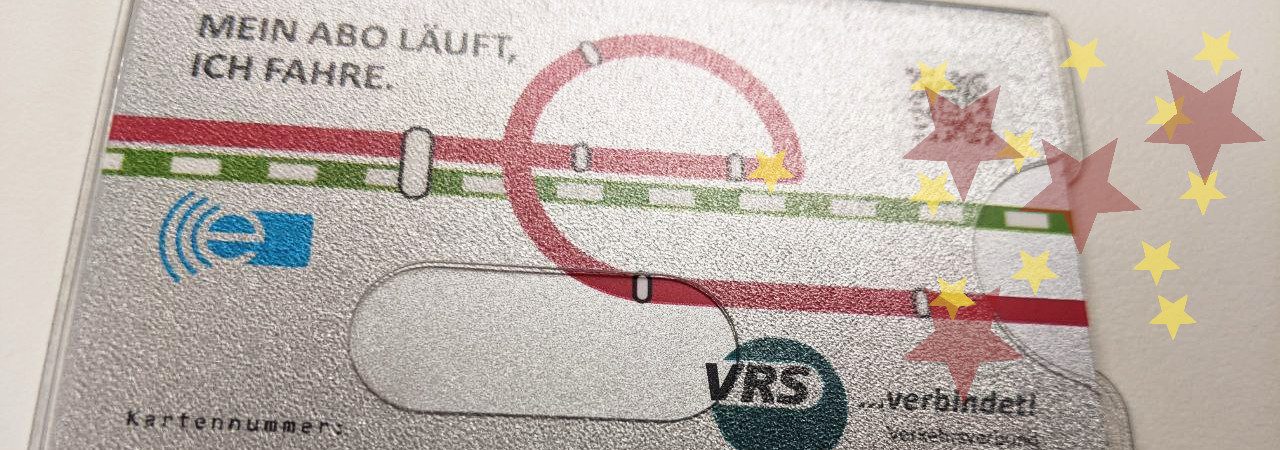
| Nachdem sich einige aus der Studierendenschaft dafür eingesetzt haben, gibt es jetzt für Menschen, die das digitale Semesterticket nicht nutzen können, neuerdings die Möglichkeit, sich eine Chipkarte ausstellen zu lassen (, wodurch euer digitales Ticket ungültig wird). Mit dieser könnt ihr wie gewohnt in ganz Deutschland ÖPNV fahren und auch KVB-Räder ausleihen. Seid ihr selbst betroffen oder kennt jemanden? | After some of the student body campaigned for it, there is now the option for people who cannot use the digital semester ticket to have a chip card issued (which makes your digital ticket invalid). You can use this to travel on public transport throughout Germany as usual and also hire KVB bikes. Are you affected yourself or do you know someone who is? |
…
Analoges Semesterticket // Analog semester ticketWeiterlesen »
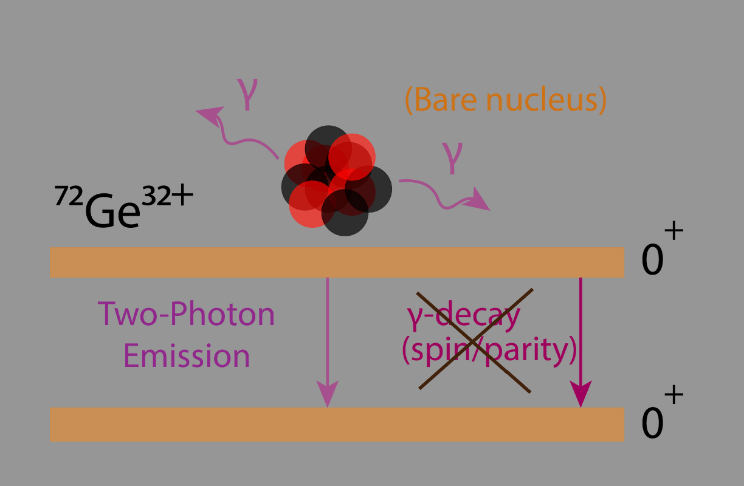
Tuesday, 7th of January, 16.00
(16.00 Coffee & Cake in the foyer, 16.30 talk & discussion)
Lecture Hall III
How to measure the small two-photon decay branch? Wolfram Korten will explain a novel technique used at GSI to measure the isolated nuclear two-photon decay.
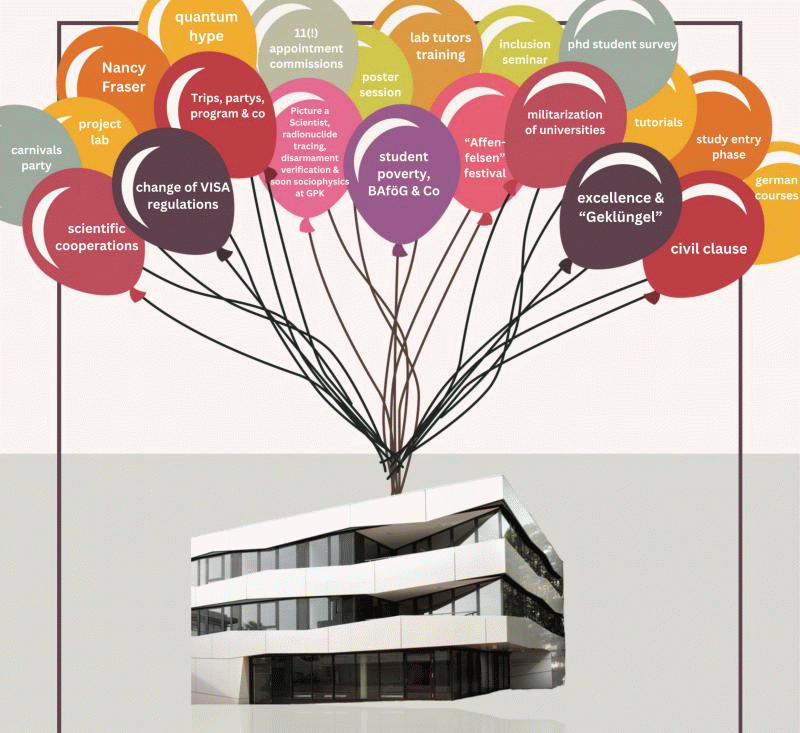
UPDATE: Some students have requested to start a petition for a ceasefire in the Middle East as an item on the agenda. This will be one of the main discussion topics on the General Assembly
|
Donnerstag, 5.12., 15 Uhr
Als Teil der bevorstehenden Uniwahlen vom 9.-13. Dezember veranstalten wir eine Vollversammlung aller Physik-Studierender.
Dabei wird es besonders auch um die finanzielle und soziale Lage von Studierenden gehen: Jüngst hat das Verfassungsgericht entschieden, dass es für Studierende keinen Rechtsanspruch darauf gibt, dass das BAföG zum Leben reicht; Konservative diskutieren die Einführung von Studiengebühren, um angesichts der Kosten der „Zeitenwende“ die frühkindliche Bildung fördern zu können.
Wir müssen unsere Geschicke also selbst in die Hände nehmen! Um die Sprachbarrieren möglichst gering zu halten, werden wir zunächst in zwei getrennten Räumen auf Deutsch bzw. Englisch Infos zu Unistruktur und Wahlen geben. Im zweiten Teil werden wir alle zusammen bilingual die Diskussionen und Wahlen durchführen; vor allem Menschen, die dies schon von früheren Wahlen kennen, können auch erst zu diesem Teil dazustoßen.
15 Uhr Infoveranstaltung auf Deutsch, Hörsaal 3:
16 Uhr Diskussionen und Wahlen (bilingual), Hörsaal 3:
Im Anschluss:
Glühwein & Kekse im Foyer und Diskussion der Wahlprogramme der Urnenwahlen
Das Protokoll der Vollversammlung wird hier veröffentlicht werden.
|
Thursday, Dec. 5, 3 p.m.
As part of the upcoming university elections (December 9-13) there is a general assembly of all physics students, including PhD students.
In particular, the financial and social situation of students will be discussed: The Constitutional Court of Germany recently ruled that there is no legal entitlement for students to receive enough funding to live on; conservatives are discussing the introduction of tuition fees in order to be able to promote early childhood education in view of the costs of the the military paradigm shift.
So we have to take our destiny into our own hands! To accommodate international students, we will first give information about the university structure and elections in two separate rooms, in German and English. After that, we all come together to discuss and conduct the elections for Department committees in a bilingual format.
15:00 Info session in English, seminar room Old Theory:
16:00 Discussions and elections (bilingual), Lecture hall III (HS III):
Afterwards:
Mulled wine in the Foyer of the physics department and discussion of the election programs of the ballot box elections.
The protocol of the General Assembly will be published here.
|
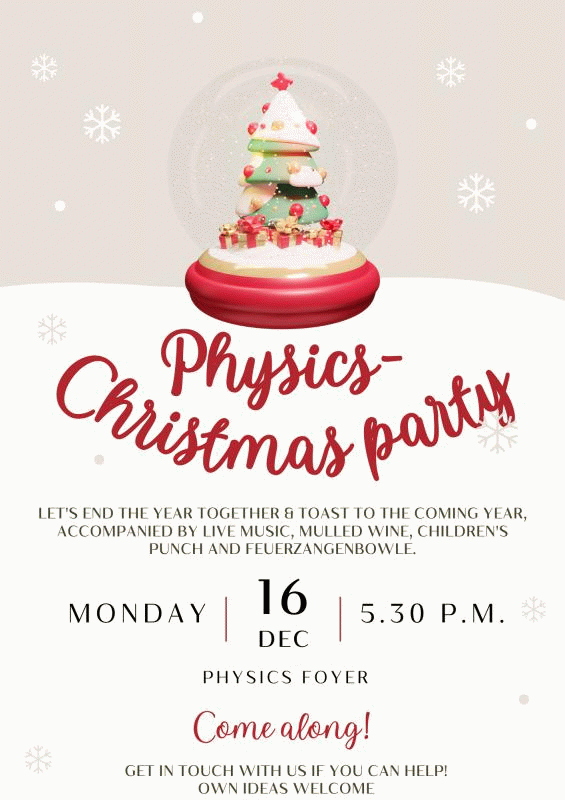
|
Montag, 16.12., 17:30 Uhr
Nächsten Montag findet unsere jährliche Weihnachtsfeier im Foyer statt. Auch dieses Jahr wollen wir mit euch allen zusammen, das Jahr ausklingen lassen und auf das kommende anstoßen, begleitet z.T. durch Livemusik, Glühwein, Kinderpunsch und Feuerzangenbowle.
Dazu laden wir herzlich ein und würden uns freuen, wenn viele vorbeikommen.
Meldet euch gern bei uns, wenn ihr mithelfen könnt.
|
Monday, Dec. 16, 5.30 p.m.
Next Monday our yearly christmas party will take place in the foyer. Once again this year, we want to the year to a close with you together and toast to the coming year, accompanied (in parts) by live music, mulled wine, children’s punch and fire tongs punch (Feuerzangenbowle 😉
We would like to invite you all to join us and are looking forward for many people to come.
Also just get in touch with us if you can help.
|
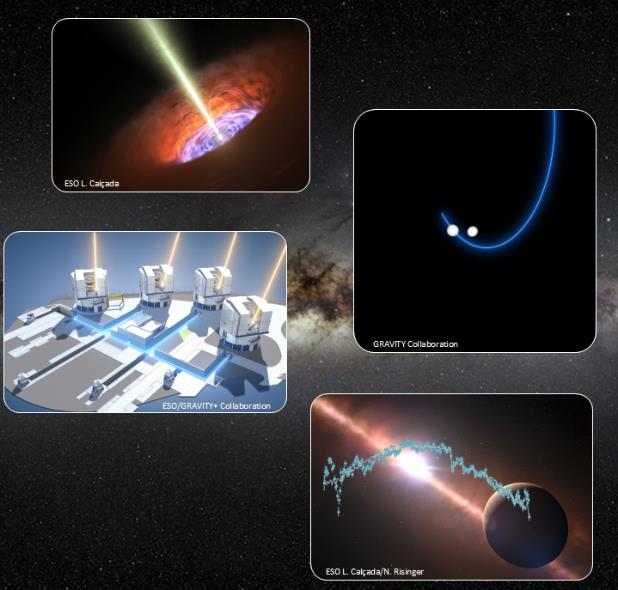
Tuesday, 3rd of December, 16.00
(16.00 Coffee & Cake in the foyer, 16.30 talk & discussion)
Lecture Hall III
Why are astrophysicists always aiming for new instruments? Frank Eisenhauer will explain this on the example of the new GRAVITY instrument at the European Very Large Telescope Interferometer.
His presentation takes us from exoplanets all the way to distant quasars, with special focus on the Galactic Center. The ongoing instrument upgrade is about to boost interferometry to the next level, then opening up the extragalactic sky, providing ever higher contrast for observations of exoplanets and more sensitive observations of the Galactic Center. We will present first results and discuss the discovery space opening up, e.g. the detailed view on Black Holes at cosmic dawn, the detection and characterization of exoplanets and their atmospheres, and the spin of the Galactic Center black hole.
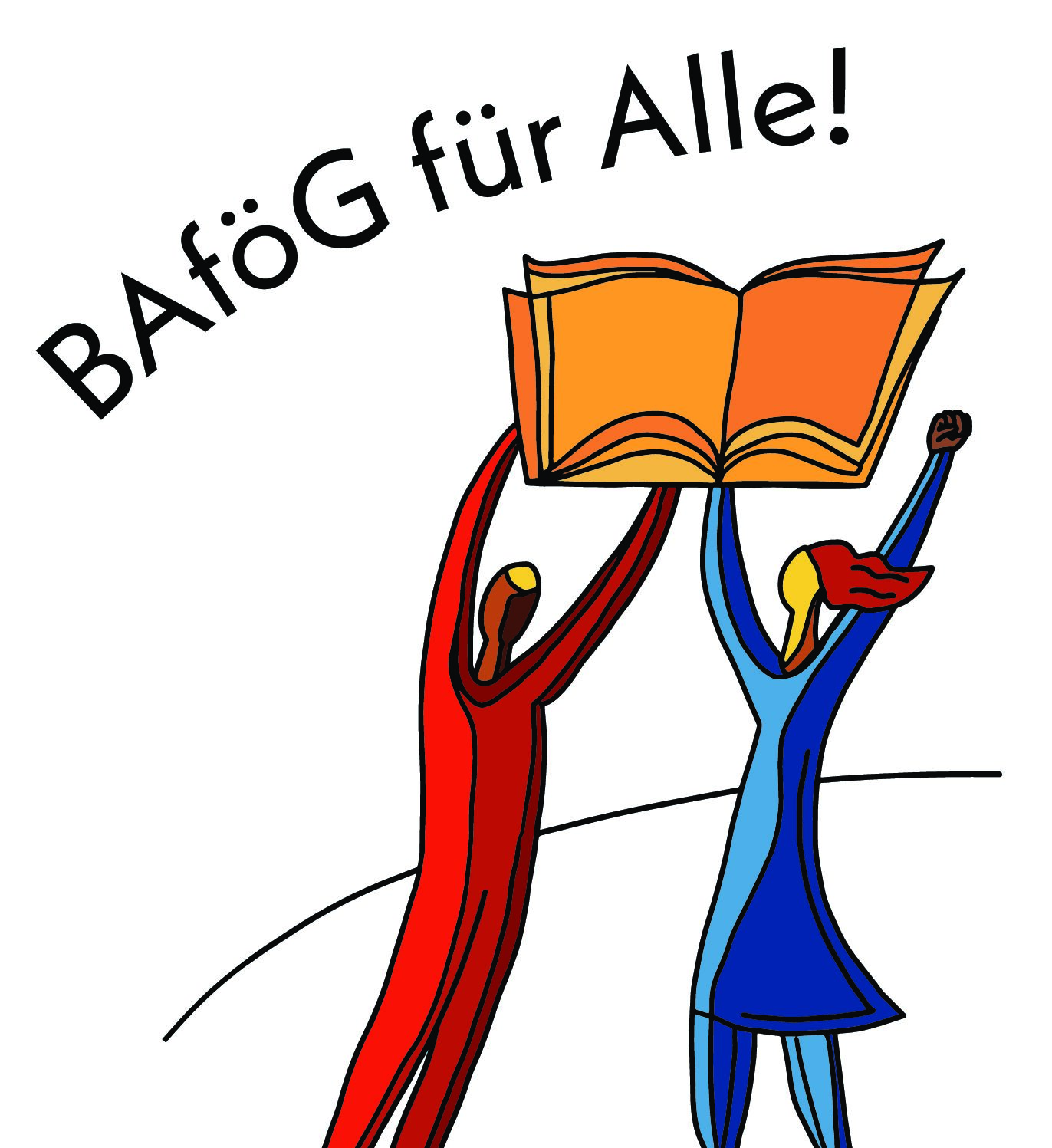 Mo., 18. November 11-4 Uhr
Mo., 18. November 11-4 Uhr
Albertus-Magnus-Platz
REDEN, STÄNDE, MITMACH-AKTIONEN UND WARME GETRÄNKE
Obwohl das Bundesverfassungsgericht in seinem aktuellen Urteil vom 30. Oktober 2024 zum BAföG eine andere Sichtweise vertritt, gilt auch für Studierende weiterhin das Grundrecht auf die Sicherung eines menschenwürdigen Existenzminimums. Die gegenwärtige Form der staatlichen Ausbildungsförderung (BaföG) verletzt dieses fundamentale Recht erheblich. Die Einkommen von 77% der alleinlebenden Studierenden befinden sich trotz Nebenjobs unter der Armutsgrenze – Tendenz steigend. Zum Vergleich: In der gesamten Bevölkerung sind es nur 14%!
Die schwierige soziale Lage der Studierenden ist jedoch kein Zufall, sondern politisch gewollt und daher veränderbar. Seit jeher geht von studentischen Bewegungen ein emanzipatorisch-revolutionäres Potential aus. Daran erinnert nicht zuletzt der alljährlich am 17. November gefeierte International Students Day. Bereits 1941 vom International Student Council ins Leben gerufen, mahnt er an den nur zwei Jahre zuvor stattgefundenen Widerstand tschechischer Studierender gegen die faschistische Besatzung der Prager Karls-Universität. …